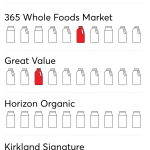
Reassessing Website Verification: An Opinion on Digital Security and Business Integrity
In today’s digital economy, verifying you are human has grown from a mere annoyance to an essential checkpoint in maintaining secure online operations. As many small businesses, industrial manufacturing companies, automotive firms, and even those involved in electric vehicles embark on their digital journeys, ensuring secure website access and protecting sensitive data has become a super important step in managing online business operations.
Reading a message like “Verifying you are human. This may take a few seconds. www.dcatvci.org needs to review the security of your connection before proceeding” might seem off-putting or even nerve-racking if you’re new to the online marketplace. But behind these messages lie powerful systems such as Cloudflare’s security and performance checks, which are aimed at shielding your business from digital threats. In this opinion editorial, we’ll take a closer look at the reasons behind these verification processes, how they intertwine with various business sectors, and what implications they hold for a broad range of industries.
Understanding the Role of Digital Verification in Business Operations
Digital verification is no longer an extra security layer—it has become one of the critical components of successful online operations. In an environment where every transaction counts, ensuring that users are indeed human (and not automated bots) is essential to protecting customer information, maintaining website performance, and safeguarding business data.
Online businesses, regardless of size, should recognize that these verification steps are not arbitrary but are there to guarantee a clutter-free user experience. Although it might feel intimidating for some—especially for those managing a small online storefront—the process helps prevent common risks such as spam, fraudulent activity, and potential cyber-attacks.
Security by Cloudflare: A Trusted Guardian for Small Businesses
Cloudflare stands at the forefront of the online defense ecosystem. Its performance and security checks ensure that a website is not only protected from hackers but is also optimized for speed and reliability. When a visitor is temporarily held up with a verification screen, it is, in essence, safeguarding your business from potential cyber mishaps that could compromise valuable customer data.
For small business owners, particularly in sectors like industrial manufacturing or automotive parts sourcing, the small distinctions between reliable and unreliable traffic can spell the difference between steady growth and significant financial loss. Understanding and accepting that these temporary hurdles protect your site can help managers and web administrators make informed decisions on web infrastructure investments.
How Automated Verification Checks Enhance Trust in the Digital Marketplace
The process of verifying digital visitors is both simple and effective. It involves running a check on each connection to decide whether it comes from a genuine human user or a dubious automated source. Beyond simply steering away potential threats, this system builds trust with customers. When end-users notice that a platform they frequent is consistently secure, the perception is one of reliability and competence.
As companies in the business tax laws or economic news sectors navigate tricky parts of online marketing and customer engagement, ensuring a secure site is a must-have element. Moreover, businesses in electric vehicles and automotive industries, where trust and brand integrity are intertwined with safety records, realize that online security is as crucial as physical safety measures in vehicles.
Enhancing Marketing Strategies Through Robust Online Security Measures
Online marketing in today’s context often means double-checking every digital interaction. When a new customer visits your website, the first impression begins with the security message. Here, the user feels the company has taken the time to protect their interests. This cautious yet effective approach in managing your online presence resonates with those customers who value transparency and safety along the buying journey.
Marketing and advertising are not just about showcasing the best product sprites, but also about highlighting that the business has steered through protecting its platform from potential pitfalls. The added computational steps from third-party security providers like Cloudflare ensure that your customer data remains uncompromised, making your online presence more appealing in an age where any breach, however small, might be magnified by social media.
Integrating Verification Processes to Build Stronger Customer Relationships
There is a growing body of evidence that the way businesses manage online security can heavily influence customer loyalty and satisfaction. The integration of verification processes is a fine blend of protecting the user while also fostering an environment of trust and transparency. This approach is especially effective in industries where customer expectations for digital safety are not just high but are demanding.
For instance, when an online automotive retailer displays a consistent commitment to securing user information—right from the moment they land on a verification page—the overall user experience is enriched by the reassurance of safety. Similarly, the microsites for industrial manufacturing or small business tax advisory services, where every bit of user trust is a must-have asset, benefit from reinforcing such layers of confidence.
Impact on Industrial Manufacturing: Overcoming Confusing Bits of Online Security
Industrial manufacturing has traditionally been steeped in tangible operations and robust operational protocols; however, as the sector adapts to digital transformation, even the manufacturing domain must get into the digital security dialogue. The verification steps mediated by Cloudflare or similar services help ensure that even if sensitive data gets processed online, it does so within a secured environment.
This aspect of digital security is closely intertwined with controlling and managing connected manufacturing devices and IoT solutions. The verification check, although brief, plays a key role in maintaining the overall security posture of a manufacturing website or cloud-based ordering system. By addressing the hidden complexities of online interactions, these verification methods assist manufacturers in overcoming the twists and turns that are common in online industrial operations.
Securing Customer Interactions in the Manufacturing Sector
- Enhanced cybersecurity protocols for client transactions
- Minimized exposure to fraudulent activities through real-time checks
- Assured confidentiality of sensitive manufacturing data
- Strengthened partnerships through reliable online communication
- Streamlined experiences during online part orders and components sourcing
Each of these bullet points underscores how crucial it is for manufacturers to not only adopt enhanced security measures but also communicate them effectively to their clientele. Improved security checks serve as a reassurance, making the process of ordering industrial parts online less nerve-racking and more streamlined for all parties involved.
Automotive and Electric Vehicle Industries: Security in the High-Speed Lane
The automotive and electric vehicle sectors are no strangers to rapid innovation and evolving digital platforms. However, the moving landscape brings its own set of tricky parts. For instance, ensuring that customer data behind mobile apps or connected car systems remains private requires efficient online security checks that verify the authenticity of data connections.
Online consumer interaction for these industries often begins with booking a service, exploring and comparing models, or even configuring a custom vehicle. If a security check causes a slight delay, it might be misconstrued as a drawback. But, experienced digital managers know that these verification stages, which might involve slight waiting times, are a necessary step to forestall instances of hacking or data siphoning. Over time, customers come to appreciate the extra precaution, much like trusting a car with advanced safety features.
Implementing Security Checks in Electric Vehicle Online Platforms
Electric vehicles are a relatively new frontier that brings with them a series of complicated pieces of regulatory, environmental, and technological challenges. Through the lens of digital security, verifying a connection is simply another link in the chain that upholds the overall integrity of an electric vehicle platform. Here are some ways digital security can be seamlessly integrated:
| Aspect | Security Benefit | Customer Impact |
|---|---|---|
| Data Protection | Guards against unauthorized data access | Ensures each vehicle configuration remains confidential |
| Transaction Safety | Prevents fraudulent purchases or data breaches | Bolsters user confidence during transactions |
| Performance Optimization | Facilitates smooth verification for user-friendly experiences | Minimizes delays and maintains customer engagement |
This table underlines that each verification step isn’t a mere hurdle but a method that reinforces the chain of trust between a business and its customers. Such measures are essential for platforms that continue to innovate while safeguarding user data.
The Business Tax Landscape: Digital Security as a Shield in a Changing Regulatory Environment
Tax laws for businesses have evolved alongside digital technology, forcing companies to understand and manage online transactions with extra care. For many small business owners dealing with business tax intricacies, every online interaction represents a potential tax event. As security and verification protocols become an essential part of everyday operations, they also help in meeting compliance requirements.
Processes built around automated verification screens can provide an additional record of online transactions. While a simple “verification successful” message might feel trivial, it operates as a digital receipt of secure interactions, reassuring both audit trails and tax compliance measures. In an age where digital records are scrutinized by regulatory bodies, such layers of security become extremely valuable and act as a backstop against potential legal complications.
Minimizing Tax-Related Complications Through Secure Digital Practices
Small business tax advisors increasingly recommend robust online security measures as part of overall best practices that ensure compliance and data integrity. Some of the key aspects include:
- Recording secure online transactions for audit purposes
- Maintaining an unbroken chain of trust through verified digital interactions
- Reducing the risk of fraudulent expense claims by verifying authentic transactions
- Ensuring proper documentation of transactions in accordance with tax laws
- Creating a transparent online trail for regulatory inspections
These practices can simplify the nerve-racking process of tax-related documentation, making it easier for businesses to steer through the tangled issues of compliance while keeping their operations secure and reliable.
Economic News and Market Trends: Observing Security as a Competitive Edge
The impact of robust online security stretches well beyond preventing cyber threats—it significantly influences economic news and market trends. As economies shift increasingly towards digital commerce, the role of secure online interactions becomes a dominant part of market dynamics. Digital verification steps not only protect financial transactions but also build the kind of brand credibility that can help companies stay competitive.
From small business startups to multinational corporations, the market benefits when consumers feel safe browsing and transacting online. A security failure, no matter how short-lived, can have a ripple effect, impacting share prices, customer trust, and overall economic sentiment. Investors and market analysts are increasingly aware of these small distinctions and are favoring businesses that put user safety at the forefront of their operational priorities.
Online Security as a Key Differentiator in Competitive Markets
Market analysts note that companies with strong digital security messages are not just avoiding pitfalls—they’re setting themselves apart from competitors. Here are some subtle details that illustrate this point:
- Increased customer retention: When customers know their data is secure, they’re more likely to return and refer others.
- Stronger brand reputation: Consistent security measures convey reliability and professionalism.
- Enhanced investor confidence: Secure digital operations are seen as indicators of a well-managed company.
- Better performance metrics: Reliable and faster website interactions lead to improved user engagement and conversion rates.
These aspects combine to create a competitive edge that reinforces the idea that digital security isn’t just an IT concern—it’s a business imperative that permeates every corner of modern commerce.
Marketing and Communications: Crafting the Right Message About Security
For any business, especially those in the high-stakes worlds of automotive sales, industrial manufacturing, and even burgeoning electric vehicle markets, how you communicate your security processes can be as important as the processes themselves. The language you use to describe what happens when a visitor encounters a verification page can either soothe concerns or exacerbate anxieties.
Marketing professionals must find their path between technical details and customer-friendly explanations. Using accessible language to explain that a brief wait for verification is a sign of superior protection can be a powerful tool in building customer trust. By avoiding overly technical jargon and focusing instead on tangible benefits, such as improved safety and seamless experience, companies can turn this moment of friction into a standout feature of their digital presence.
Effective Communication Strategies for Online Verification
Here are some strategies for marketing teams to consider when describing online verification processes:
- Simplify the message: Use everyday language to explain why a verification step is necessary. Terms like “ensuring your safety” or “protecting your transaction” resonate more than complicated descriptions.
- Highlight benefits: Focus on the positive outcomes such as data protection, a safer browsing experience, and a stronger assurance of privacy.
- Use analogies: Compare digital verification to physical security measures—just as a car’s safety features protect you on the road, these processes protect your online interactions.
- Be transparent: Clearly outline what happens during the verification process so users know exactly why a few seconds of delay are necessary.
- Show continuous improvement: Emphasize that your company is always working on taking the wheel when it comes to online safety, updating systems and protocols to stay ahead of potential threats.
By taking a customer-friendly approach to explaining verification processes, marketing teams can transform a potentially off-putting security checkpoint into a core part of the brand’s promise of reliability, trust, and professional service.
Preparing for a Future of Digital Transformation and Enhanced Security
The digital landscape is evolving at a breakneck pace, where every year brings new challenges and opportunities. In the near future, we can expect more advanced verification systems, deeper integration of artificial intelligence in security checks, and a wider adoption of these protective measures across industries.
For small businesses, the journey of adopting advanced online security measures might initially seem filled with intimidating twists and turns. However, these improvements are designed to keep pace with growing cyber threats and changing market expectations. By embracing these developments and understanding the fine points of verification and protection, businesses can build a resilient online presence that supports long-term growth.
Charting a Course for Continuous Security Improvements
As digital threats evolve, so must our responses. Business leaders and IT professionals need to be proactive in finding their way through upcoming trends in cybersecurity. Some key considerations include:
- Investing in adaptable security technology: Ensure your systems can evolve and handle new forms of cyber threats.
- Regular training and updates: Keep your team up to date with the latest practices in online safety.
- Partnering with trusted security providers: Collaborate with reputable firms like Cloudflare to harness cutting-edge protection strategies.
- Monitoring and feedback: Use continuous monitoring systems to detect and address potential vulnerabilities before they become substantial issues.
- Customer education: Inform users about the reasons behind security verifications, helping them feel more comfortable with the process.
These approaches not only fortify the digital front but also enhance the overall user experience, reinforcing a brand’s commitment to safety and excellence in every interaction.
Conclusion: Embracing Secure Digital Practices for Tomorrow’s Success
In conclusion, the brief moment when a website displays a “Verifying you are human” message is a microcosm of the broader efforts being made to secure our digital future. Although such pauses might seem nerve-racking at first, they are, in reality, an indispensable part of how modern businesses protect themselves and their customers.
Whether you’re an entrepreneur launching a small business, a manufacturer integrating digital operations, an automotive retailer refining your online sales platform, or a financial advisor keen on managing business tax law complexities, the importance of robust digital security cannot be understated. These measures aren’t there to complicate your digital journey—they’re the safety nets that allow you to confidently steer through the tricky parts and tangled issues of the online marketplace.
As we move further into an age of rapid digital transformation, embracing these security measures will be key. Economic trends show that companies prioritizing online protection not only enhance their operational performance but also fortify their reputation in increasingly competitive markets. The extra few seconds spent on verifying that you are human are essential in building trust, increasing customer loyalty, and ensuring that both your data and your clients’ privacy are well-guarded.
In essence, viewing verification screens as a mark of quality rather than a hurdle changes the narrative. These improvements in security—though packed with technical twists and moments of slight inconvenience—are proof that your online operations are in safe hands. It is a reassurance that every digital interaction is being closely managed, and every transaction is being recorded in a secure manner.
It is time for all stakeholders across industries to get into these security discussions, polish internal communication about online safety measures, and raise the standard of digital trust. As online businesses continue to mature, integrating advanced verification processes will ensure that growth in revenue, customer satisfaction, and market reputation keeps pace with technological progress.
After all, in an interconnected world, the path to success is rarely free of complicated pieces and nerve-racking checks. However, these measures transform our digital environment into one that is not only efficient but also resilient—ready to meet tomorrow’s challenges head-on. Embracing this secure digital landscape is not just about staying ahead of threats; it is about crafting an online experience that customers can trust and rely upon, ensuring that every business, regardless of size or sector, thrives in this rapidly evolving digital age.
Originally Post From https://www.dcatvci.org/top-industry-news/supplier-news-lonza-probiogen-evonik-more/
Read more about this topic at
What is Automated Security Validation?
What is Automated Security Validation?


